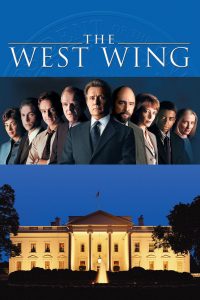Context is important, but we rarely seem to consider it. This is what’s wrong with how we teach History and tell stories, for the most part. We may do a good enough job of explaining what happened and who did it, but rarely spend many calories discussing the world around an event, or the people surrounding a conflict, or the various alternatives and what each might have offered and so on.
The Civil War blah-blah-blah… and President Kennedy blah-blah-blah and by the third year of production, Ford decided to blah-blah-blah and on and on. So often the details of everything else going on around an event or a person are abbreviated or are just left out completely. Most of the time this is okay. Most of the time there’s no harm. It’s expedient. Hell, if you had to back up, and back up and back up again to tell a story probably nothing would ever get passed along, I realize that. “Okay, I told you that story so I could tell you this one…” Over time, especially, a lot of those little details can probably fade some. In an age when anything can be looked up, it’s maybe not so important to know the names of all of the Abraham Lincoln conspirators, today. Maybe it’s enough to only know that he was shot as a result of a conspiracy. Or is that even important today, after more than 150 years? Lincoln was shot may be enough. I’m not really sure.
I got to thinking about this a few months ago when I overheard some kids at a restaurant discussing The Beatles and, specifically, the Sgt. Pepper’s Lonely Hearts Club Band album. One said he didn’t understand why people still went on and on about what a groundbreaking album it was, after fifty years. He didn’t understand why we were still talking about it after all that time.
But again: context. He was looking backward through fifty years. He had never known a world that didn’t include Sgt. Pepper. He had listened to the album itself maybe five or six times? And he had certainly heard some of the songs from the album dozens of times.
But maybe just as important, he had also heard hundreds of songs that had been influenced by Sgt. Pepper. Music that came out in 1977 had a decade worth of Sgt. Pepper’s influence and innovation baked-in, to one degree or another. The songs of 1987 had twenty years’ worth, building on that first decade, adding another, plus the original album itself. By 1997 we were up to thirty years and so on. Digital effects, any manner of recording tricks and even the way songs were written and orchestrated were all affected by Sgt. Pepper’s and all of that can seem to be kind of lost when looking backward from here into 1967.
But when you look at the music charts of 1966 you see a much different story. 11/5/1966 brought us the Monkees, the Rolling Stones and the Beach Boys, sure. But the chart was still heavy with Tommy Roe’s “Hooray for Hazel”, Roger Williams’ “Born Free” and even Elvis Presley’s “Spinout”. Most of the hits were recorded on one or two-track machines in mono, not stereo—and in a lot of cases they recorded several takes and published the best one.
People don’t appreciate how incredible the 1963 Chevrolet Corvette was when it rolled onto our streets, again because we’re looking backward with the benefit of now fifty-five years of automotive evolution. And again, it may be difficult to appreciate today how much it rocked the auto world when it arrived, because since 1963 (and 1964, ’65, ’66 and 1967) we’ve had cars that looked like that. We still see them, now and again. But the streets the 1963 Corvette landed on were awash in a sea of Chevy Impalas, massive Cadillacs and Buicks and nameplates we don’t hear of today: Plymouth, Oldsmobile, DeSoto, Nash, Packard, Studebaker, Mercury, Rambler, Hudson Corvair and, yes, Edsel.
Very little in Life just happens on its own. Spend a little effort looking into the times, the people and their interests and how the puzzle parts fit together. Do a little research and you’ll likely find some debate—often heated—about any given outcome.
One of my favorite jokes says “Context is important: Everyone pees in the swimming pool, but you shouldn’t do it from the high board!”
